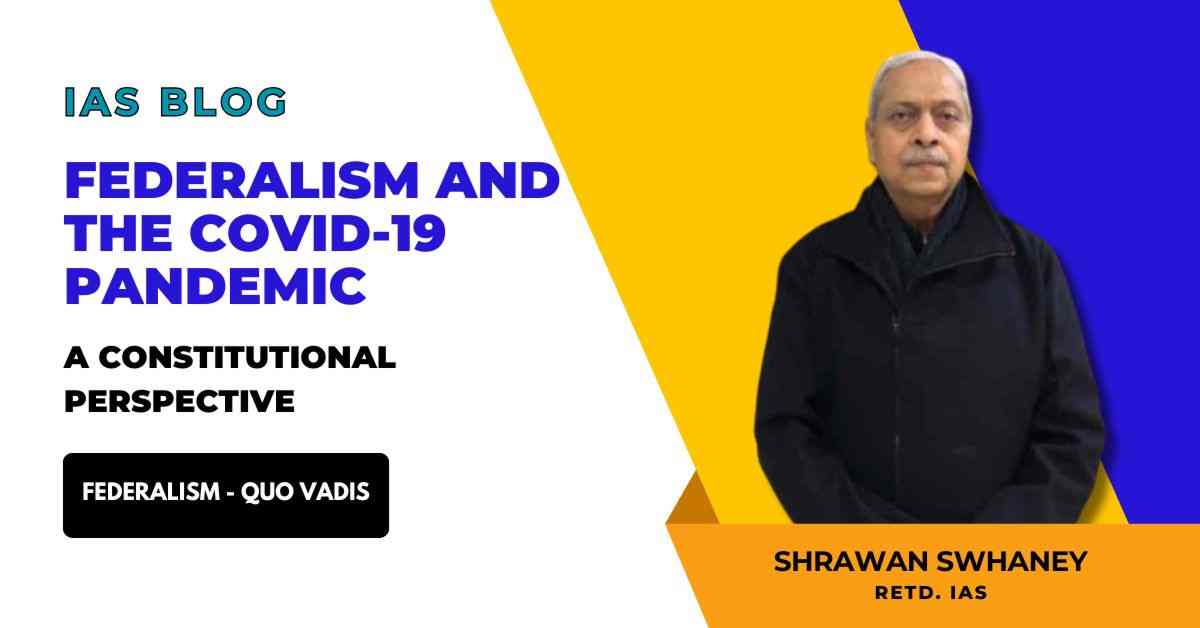Community Resources: An Equitable Landscape Table of Contents Blog – Community Resources: An Equitable Landscape Notes on the basis of the Blog Important Questions on Community Resources: An Equitable Landscape …
Recently, an article in a leading English national daily made a thesis that the outbreak of Covid-19 pandemic has led to our country being governed in a unitary manner, even though our constitution has laid down a federal structure of the government.
There was a cavil in the article that this unitary functioning required to be looked into and scrutinised by the Hon’ble Apex Court as being violative of our federal character.
It is relevant to point out the Central Government’s directives to all the States and Union Territories emanated under the Epidemic Diseases Act, 1897, a law which was first enacted to tackle bubonic plague in Mumbai (formerly Bombay) in former British India and Disaster Management Act, 2005.
These law are meant for controlling epidemics and national disasters by providing special powers that are required for the implementation of containment measures to prevent the spread of the disease or to manage the situation arising due to any disaster.
GS 1 GS 2 GS 3 GS 4 Ethics and Human Interface Attitude Aptitude Emotional Intelligence Moral Thinkers & Philosophers Values and Ethics in Public Administration Probity in Governance Case …
GS 1 GS 2 GS 3 GS 4 Ethics and Human Interface Attitude Aptitude Emotional Intelligence Moral Thinkers & Philosophers Values and Ethics in Public Administration Probity in Governance Case …
GS 1 GS 2 GS 3 GS 4 Ethics and Human Interface Attitude Aptitude Emotional Intelligence Moral Thinkers & Philosophers Values and Ethics in Public Administration Probity in Governance Case …
GS 1 GS 2 GS 3 GS 4 Ethics and Human Interface Attitude Aptitude Emotional Intelligence Moral Thinkers & Philosophers Values and Ethics in Public Administration Probity in Governance Case …
GS 1 GS 2 GS 3 GS 4 Ethics and Human Interface Attitude Aptitude Emotional Intelligence Moral Thinkers & Philosophers Values and Ethics in Public Administration Probity in Governance Case …
GS 1 GS 2 GS 3 GS 4 Ethics and Human Interface Attitude Aptitude Emotional Intelligence Moral Thinkers & Philosophers Values and Ethics in Public Administration Probity in Governance Case …
GS 1 GS 2 GS 3 GS 4 Indian Economy Inclusive Growth Government Budgeting Agriculture Effects of Liberalization Infrastructure Science and Technology Environment Disaster Management Security × Indian Economy Inclusive …
GS 1 GS 2 GS 3 GS 4 Indian Economy Inclusive Growth Government Budgeting Agriculture Effects of Liberalization Infrastructure Science and Technology Environment Disaster Management Security ☰ More GS 3 …
GS 1 GS 2 GS 3 GS 4 Indian Economy Inclusive Growth Government Budgeting Agriculture Effects of Liberalization Infrastructure Science and Technology Environment Disaster Management Security ☰ More GS 3 …
GS 1 GS 2 GS 3 GS 4 Indian Economy Inclusive Growth Government Budgeting Agriculture Effects of Liberalization Infrastructure Science and Technology Environment Disaster Management Security ☰ More GS 3 …


